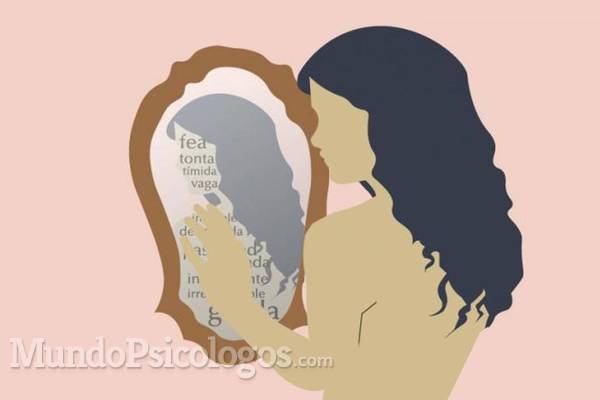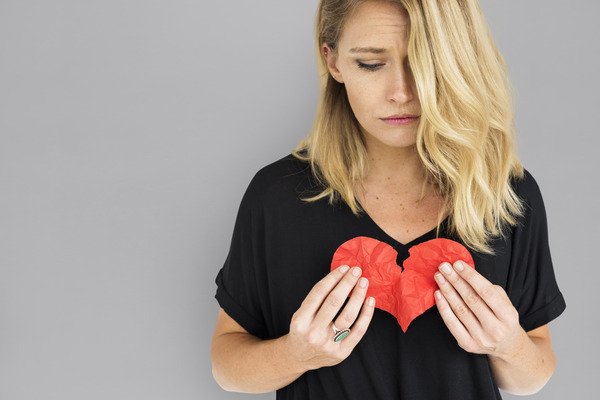What are emotional wounds and how can they affect us? What can we do to detect them and heal them properly? Discover how to heal emotional wounds from childhood.
When people constantly encounter the same traumas over and over again, as well as feel that things are not getting better, perhaps they are facing emotional wounds that come from childhood or from certain events that have really hurt them mentally and psychologically. Thus, people with these feelings often feel stuck and frustrated because the situation never seems to improve. So how can we detect these emotional wounds and what can we do to heal them?
What are emotional wounds?
The most emotional wounds They usually come from childhood. In fact, each wound ends up having different behavioral symptoms, which can make it difficult to detect what is hindering our personal evolution. When a person suffers from one of these emotional wounds, they usually experience distress and damage that ends up affecting their psychological well-being.
How do I know if I am suffering from an emotional wound?
Some of the symptoms that may indicate that we are suffering from certain emotional wounds are the following:
- Feeling that our personality is fragmented: People may feel that they are living their lives from a ‘false self’, that is, with a personality that they do not feel is really theirs.
- Excessive fear: Fear experienced excessively can be accompanied by feelings of inferiority, low self-esteem and guilt.
- Lack of trust: People who have certain emotional wounds may experience difficulty trusting both other people and themselves. This can make them ‘question’ their own thoughts, feelings, perceptions, opinions and needs.
- Distortion of reality: having suffered a emotional wound It can cause people to end up perceiving situations in a distorted way, such as thinking that their partner will be unfaithful to them (despite the fact that there is no evidence to prove these acts), among others.
- Difficulty feeling emotions: In some cases, people with a emotional wound They may have difficulty feeling, empathizing, or loving others.
In most cases, these emotional wounds They usually come from childhood, making the search to treat them become entangled with the challenge of healing our inner child. For this reason, in the presence of one of these symptoms, it is important to go to a professional psychologist.

Types of emotional wounds
Some emotional wounds The most common are the following:
- Abandonment wound: When parents emotionally ‘abandon’ their children this can lead to different problems for their psychological development. That is, the absence of parents and lack of care mean that children can experience endless emotional problems.
- Rejection: Rejection can come in many forms, but when it is experienced during childhood, its effects can be devastating. In fact, it affects both our self-esteem and our self-awareness. When a child experiences rejection, she may end up developing problems opening up and trusting others.
- Injustice: This emotional wound It can be formed under the care of a father or mother who is too strict with their children. This can affect the ‘sense of justice’, resulting in people becoming very rigid and setting very high standards for themselves and others.
- Violence: Children who witness violence within the family may end up internalizing this violent pattern. As a result, children may repeat this abusive cycle in their adulthood.
- Humiliation: When people feel continually humiliated, they often develop low self-esteem and anxiety. Whether due to bullying situations at school or the opinions that parents may say, this can create an emotional wound

How to heal emotional wounds from childhood?
There are a series of tips that you can follow to heal these emotional wounds:
- Take small steps: Attempting a radical change from one day to the next can be counterproductive. In fact, you can feel overwhelmed or a failure if you set unrealistic expectations. In reality, it is better to make changes that can be manageable and gradual.
- Be patient: Heal emotional wounds It requires a lot of work and dedication. Therefore, it is important to keep in mind that although we make some ‘mistakes’, we can always improve it on other occasions.
- Set realistic expectations: It is likely that when trying heal our emotional wounds Sometimes we think we are taking a step back. In many cases progress is not constant, but is usually irregular.
- Consider setbacks as an opportunity: We will always have certain difficulties in our life. In fact, we can learn more from what doesn’t work than what does. Therefore, instead of trying to avoid setbacks or relapses, you should accept that it is all part of the process.
- Prioritize your self-care: If you want to face these emotional wounds, you need to take care of yourself. The reason is that to pay attention to our emotional side, we need to have more space for ourselves.
- Process feelings about your past: Trying to avoid what happened in your past will never work. In fact, for heal your emotional childhood wounds It is vital that you accept these feelings.
- Go to therapy: Although on many occasions it is difficult to ask for help, given the emotional wounds It is necessary to do so if they are causing havoc and difficulties in your daily life.
The emotional wounds They can stop our personal, professional and other opportunities. For this reason, it is important to focus on detecting and healing them.









